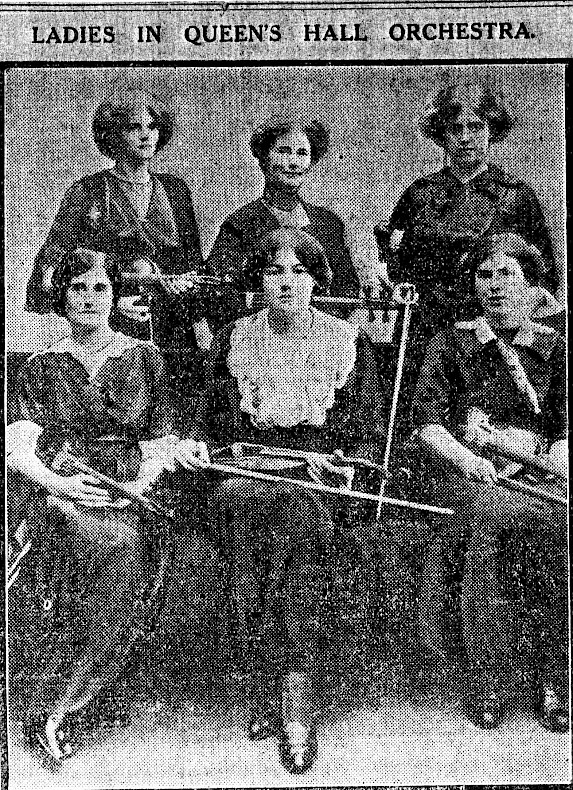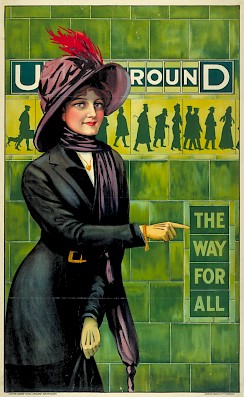Women in the band, 1913
'"Women in the Band": Music, Modernity and the Politics of Engagement, London 1913'
First given at the Seventh Biennial International Conference on Music in 19th-Century Britain, University of Bristol, July 2009; revised for the American Musicological Society Annual Meeting, Philadelphia, November 2009; Music in Britain and Women's History Seminars, Institute of Historical Research, London, February 2010; and International Association of Music Libraries Conference, Trinity College Dublin, July 2011
 In October 1913 six women string players joined the Queen’s Hall Orchestra of London, making headlines as well as history. No other fulltime professional British symphony orchestra allowed women at that date except as harpists. One version of the event has been on the record since 1938, in Henry Wood’s autobiography My Life of Music. Later writers agree that Wood’s bold action, reputedly indebted to Belgian precedent, created a breakthrough for British women. In reinscribing the episode as essentially a women’s performing landmark, however, commentators have missed its significance in wider debates, from evolving labour practices and modern music’s aesthetic demands to the implications of female suffrage.
In October 1913 six women string players joined the Queen’s Hall Orchestra of London, making headlines as well as history. No other fulltime professional British symphony orchestra allowed women at that date except as harpists. One version of the event has been on the record since 1938, in Henry Wood’s autobiography My Life of Music. Later writers agree that Wood’s bold action, reputedly indebted to Belgian precedent, created a breakthrough for British women. In reinscribing the episode as essentially a women’s performing landmark, however, commentators have missed its significance in wider debates, from evolving labour practices and modern music’s aesthetic demands to the implications of female suffrage.
This talk offered a revisionist view of the 1913 hire, its circumstances and outcomes. Using memoirs, photographs, press reports, orchestral scores and management strategies behind ‘Queen’s Hall Orchestra Ltd’ (1902-15), I argue that the employment of these women fulfilled clear objectives in expressing the orchestra’s progressive identity by its farsighted Liberal owner, Sir Edgar Speyer.

Particularly relevant in 1912-13 were restive male orchestral players seeking to combine against effective performance of challenging new works, including Schoenberg’s, on QHO programmes; the stunning international rise of Thomas Beecham as Wood’s younger rival in modern European music from Strauss to Stravinsky; and a Liberal prime minister notoriously opposed to female suffrage, Herbert Asquith.
At a stroke, on the highly visible platform of London’s premier concert hall, six female colleagues were seen, and heard, to cut across such debate by engaging both public and professional attention. Embodying modernity, they contributed to an orchestra that Schoenberg himself ranked with the Amsterdam Concertgebouw and the Vienna Philharmonic, in January 1914. I further trace the important role of women in the BBC SO (1930, an advanced ensemble indebted in many ways to the old QHO), and uncover the roots of historiographical confusion around the 1913 episode. The full narrative will form part of my book on the development of London orchestral culture.
'a very impressive, exciting and paradigm-shifting paper'
Clemens Gresser, Cambridge music librarian
'engrossing, brilliantly delivered, and a model of how so much can be understood about a situation from simple and often apparently contradictory references ... I hugely enjoyed it'
David Wright, social historian of music
'you turned what seemed a blurred blip in history into a very significant event ... but you also brought it so humanly alive'
Nick Morgan, music historian and producer
 Langley
Langley